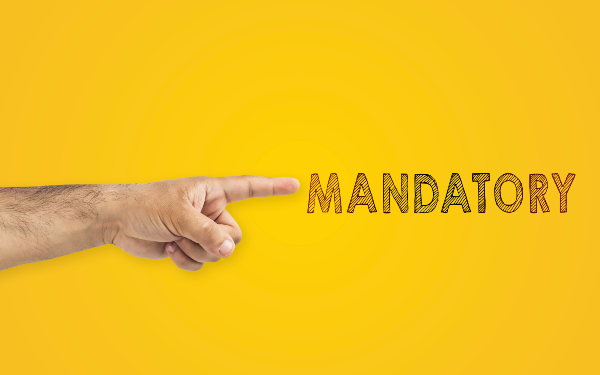
There will be no criminal sanction for failing to report child sexual abuse (CSA) under the government’s plan to introduce mandatory reporting, despite home secretary Yvette Cooper appearing to have said previously that there would be.
Instead, the government has said that those under a duty to report “may be referred to their professional regulator (where applicable) or the Disclosure and Barring Service [DBS], who will consider their suitability to continue working in regulated activity with children”.
It will also introduce an offence of of preventing or deterring a person from complying with their duty to report CSA.
The proposals, included in the Crime and Policing Bill, are broadly similar to those put forward by the previous Conservative government before it lost power last year.
Response to CSA inquiry recommendation
Both sets of proposals are responses to the Independent Inquiry into Child Sexual Abuse’s (IICSA) recommendation to require anyone carrying out a regulated activity – those which a person barred by the DBS are prohibited from doing – or in a position of trust with children to report cases of CSA.
However, both the Conservative and Labour proposals differ from IICSA’s in two key respects:
- There would be no requirement to report CSA in cases where recognised indicators of abuse were present. Instead, the duty would only apply where a person had witnessed CSA or a perpetrator or victim had disclosed it to them, which the inquiry found or implied were relatively rare.
- There would be no criminal sanction for anyone who did not report cases of witnessed or disclosed abuse. In relation to this, IICSA said that a failure by those in a position of trust over children to pass on information about CSA to the police or local authorities was “inexcusable” and “the sanction for such an omission should be commensurate”.
Cooper comments interpreted as heralding criminal sanction
The absence of an offence comes despite Cooper having said, on announcing that Labour would take forward mandatory reporting, that there would be “professional and criminal sanctions to fail to report or cover up child sexual abuse”.
This was taken as meaning that failing to report CSA, if you were under a duty to do so, would be criminalised.
For example, the House of Commons Library, which provides neutral briefings on parliamentary issues, drew a contrast between the Conservative and Labour approaches in a report on the issue, published in January this year.
“On 6 January 2025, the home secretary, Yvette Cooper, announced the government would “make it mandatory to report abuse” through measures in the Crime and Policing Bill, to be introduced to Parliament in the spring,” it said.
“She added that failing to report child sexual abuse would be “an offence, with professional and criminal sanctions”. This is different from the previous government’s proposals for mandatory reporting, under which failing to report would not have been an offence.”
No offence of failing to report CSA
However, when the Crime and Policing Bill was published at the end of February, there was no such offence included.
The bill is now being scrutinised by a committee of MPs, who considered the issue last week, when Labour MP Matt Bishop raised the absence of an offence with crime and policing minister Diana Johnson.
In response, Johnson pointed to the fact that those subject to the duty would include volunteers and taxi drivers taking children to school, as well as professionals such as social workers and teachers.
She said IICSA’s recommendations “were not about criminalising those individuals”, which the government did not believe would be “appropriate”.
“What we were very clear about – again, I think that [IICSA] made this point – is that if anybody tries to interfere with or stop that reporting, that is the criminal offence,” she added. “That is the bit that we think is important to have in the bill.”
Pressure group Mandate Now was heavily critical of both the absence of a criminal sanction and the fact that the duty to report applied only to witnessed or disclosed abuse, given research indicating such cases were rare.
‘Never acceptable to turn blind eye to abuse’
For the NSPCC, head of policy Anna Edmundson said: “It is never acceptable for adults to turn a blind eye to child sexual abuse and essential they act immediately if they have any concerns that children or young people may be experiencing it.”
She said that the “responsibility to report must be underpinned by adequate training”, so professionals and volunteers can “spot the potential signs and indicators of child sexual abuse and respond with confidence”.
“There should be consequences for failing to act in line with clearly established duties to report – including a range of professional and other disciplinary sanctions,” she added.
Legislation ‘a step in the right direction’
Lucy Duckworth, policy advisor at The Survivors Trust, said the legislation, though not going as far as the charity would have liked, was a “fantastic step in the right direction”, in the context of a longstanding campaign to introduce mandatory reporting.
She said criminal sanctions for failure to report would not be effective because “people wouldn’t believe it would happen”.
“The criminal justice system is not fit for purpose,” she added. “What people are concerned about is their reputations. If that position of trust is threatened if people fail to report and you could lose your job, [that will have an impact].”
Duckworth said that though the trust – a membership body for specialist rape and sexual abuse services – would have liked to have seen a duty to report CSA when there were recognised signs of abuse, the Home Office’s view was that “we don’t have a culture where we understand what indicators of abuse look like”.
Mandatory reporting of CSA plans
The government’s plans for mandatory reporting of CSA are set out in sections 45-54 of the Crime and Policing Bill. Under these provisions:
- The duty to report a suspected child sex offence applies to people carrying out a regulated activity relating to children under the Safeguarding Vulnerable Groups Act 2006 or engaging in one of a list of activities specified in schedule 7 of the bill, covering education, social care and policing. The duty does not apply outside of the context of these activities.
- The duty applies if the person has witnessed a child sex offence; if a child discloses to the person information that would reasonably cause them to suspect a child sexual offence had been committed; if another individual discloses information to the person that would reasonably cause them to suspect that the individual has committed a child sex offence; the person sees an image or hears a recording that reasonably causes them to suspect a child sex offence has taken place, or the person sees an image that reasonably causes them to suspect that the image’s possession may constitute a child sex offence.
- The duty does not apply under certain specified conditions involving children aged 13-17 who consented to the activity in question and where the reporter believes that reporting this would not be appropriate, taking into account the risk of harm.
- The duty also does not apply if the reporter has been informed by another person that they have made the notification and reasonably believes this has been made or if the person reasonably believes that another person will make the report.
- The report must be made to the relevant local authority (if known, the one in whose are the child lives) or police force (if known, the one covering the area in which any of the alleged suspects live), as soon as is practicable, either orally or in writing, and identifying the alleged suspects.
- It is an offence to prevent or deter a person from complying with their duty to report, punishable by a fine or up to seven years in prison.
- Failing to comply with the duty to report will constitute “relevant conduct” that would be liable for inclusion on the DBS’s list of people barred from working with children.






 Bournemouth, Christchurch and Poole
Bournemouth, Christchurch and Poole  Hampshire County Council
Hampshire County Council  Oxfordshire County Council
Oxfordshire County Council  South Gloucestershire Council
South Gloucestershire Council  Wokingham Borough Council
Wokingham Borough Council  Webinar: building a practice framework with the influence of practitioner voice
Webinar: building a practice framework with the influence of practitioner voice  ‘They don’t have to retell their story’: building long-lasting relationships with children and young people
‘They don’t have to retell their story’: building long-lasting relationships with children and young people  Podcast: returning to social work after becoming a first-time parent
Podcast: returning to social work after becoming a first-time parent  How managers are inspiring social workers to progress in their careers
How managers are inspiring social workers to progress in their careers  Workforce Insights – showcasing a selection of the sector’s top recruiters
Workforce Insights – showcasing a selection of the sector’s top recruiters 

 Facebook
Facebook X
X LinkedIn
LinkedIn Instagram
Instagram
Mandatory reporting could in my view lead to children being less willing to report abuse to professionals in the long run. If they have no choice in what is shared and when it is reported, is that right?
Children need to be protected. I’m 52, and grew up in another western country (although I am an ethnic minority) and I had a female friend in high school when she was about 14 confide to me she thought she was ‘Pregnant by her Dad’ and her Mother knew, and was angry and jealous of her as their biological daughter. This was at a time when sexual abuse was still hidden and in the closet, it went on, but nobody talked about it. I was the same age, and a kid myself, and I did not know what to do about it, and I had my own issues at home, as I was getting physically abused by my Dad. I once went to school with belt buckle marks on my legs, and the PE Teacher saw, asked what happened, I told the truth, and it never went further. It never occurred to me to tell my Parent’s about my friend or a Teacher,or anybody, I did not ask about it, and life went on. When she was 16, she told a Teacher (as it got to much) and eventually she was removed and put in a group home, where life was just as bad. She got married at 19 to the first bloke she dated (he was in his late 40’s) – so he was taking advantage of a young person too, and they had two kids. Her husband still let her Dad walk her down the aisle, knowing what he had done. She later told me her Dad was raping her almost every day, the Mother knew, and did nothing about it, as she was jealous, and had even caught him in the act quite a few times. That’s not a Mum and Dad – they are criminals, and need to be brought to justice.
what’s the psychology of this 🤔
… all children (and most adults) know more than they can tell the liminality of which creates, what?
… what? is? the point 👉 of disclosure …
.. it’s impossible to regulate the past/past behaviour is the best indicator of future behaviour. …
… imprinting and implantation, eh!
…what’s the sociology of this ?
… more work needed, no? ….
…